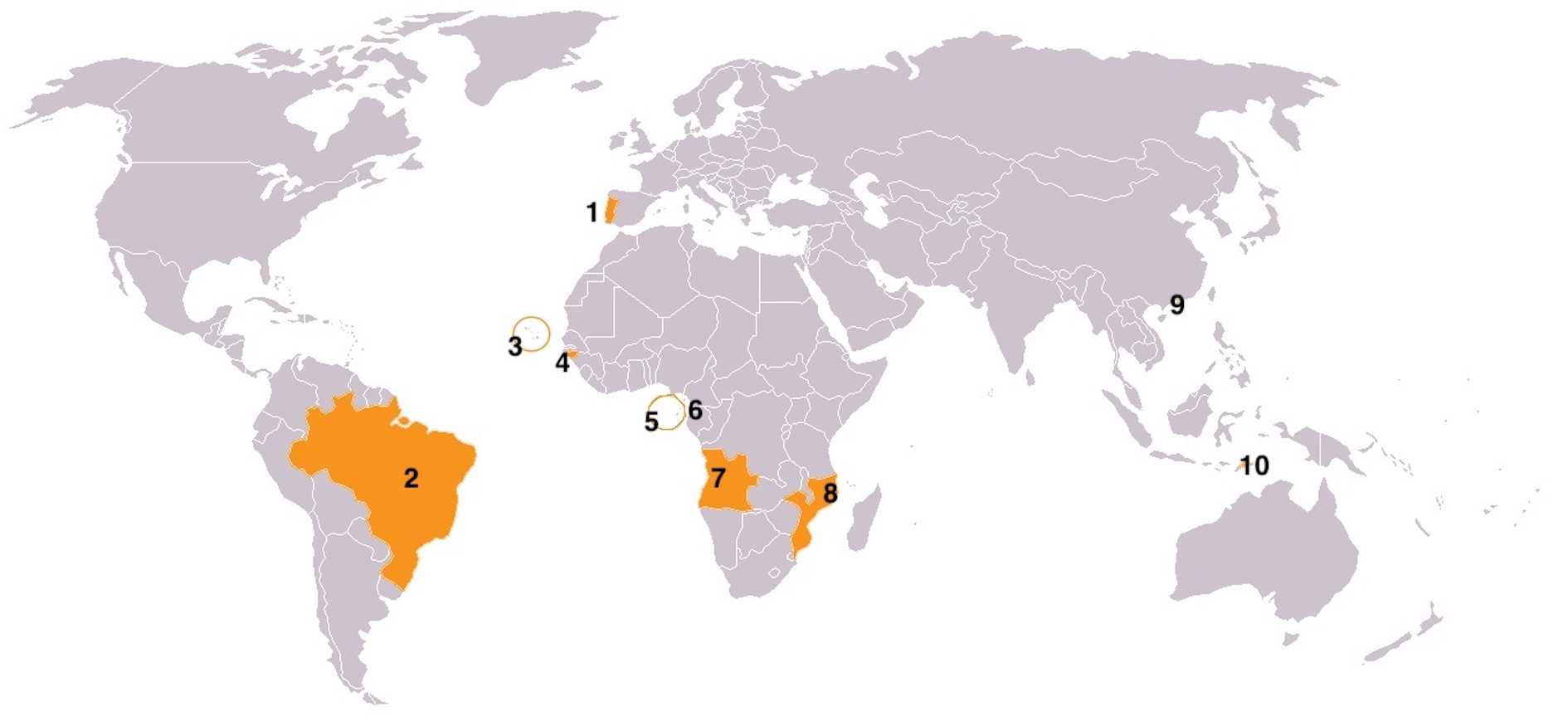
The Lusophone World Trivia Quiz
Portuguese is an official language in 10 countries and territories on four continents. See if you can find them on a map.
A label quiz
by wellenbrecher.
Estimated time: 3 mins.


| 1. |
| 2. |
| 3. |
| 4. |
| 5. |
| 6. |
| 7. |
| 8. |
| 9. |
| 10. |